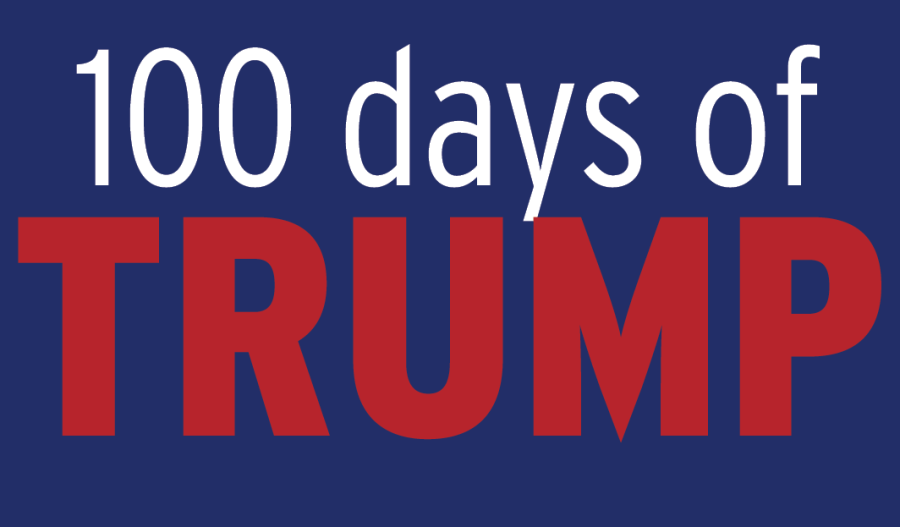Story by Collin Morris, Assistant Sports Editor
In the late hours of the night on Thursday, April 6, President Donald Trump ordered a missile strike directed at a Syrian airfield.
The strike is in response to the April 4 chemical attack, which killed at least 69 Syrians. Trump blamed the chemical attack on Syrian President Bashar al-Assad.
The Syrian government denied claims of their involvement with the chemical attack while Russia, known allies of al-Assad government, said it was caused by an airstrike on a rebel facility storing chemical weapons.
According to the Pentagon’s official statement, the strike targeted aircraft, aircraft shelters, petroleum and logistic storage, ammunition supply bunkers, air defense systems and radars.
However, according to the Syrian state media, nine Syrians civilians were killed in the strike.
Following the strike, U.S. Secretary of State Rex Tillerson said Bashar al-Assad’s leadership should be questioned.
“Assad’s role in the future is uncertain, and with the acts that he has taken, it would seem that there would be no role for him to govern the Syrian people,” Tillerson said.
On Tuesday, March 11, a U.S. government official announced that a U.S. investigation into the events revealed Russia knew of the imminent chemical attack in advance, but did not act.
Multiple tweets from Trump’s personal Twitter account containing criticisms of former President Barack Obama and calling for U.S. isolation from conflict in Syria were trending in the hours after the strike, as well as the next day.
Trump has been criticized for ordering the strike without congressional approval. Sen. Rand Paul, R-Kentucky, is one of those critics; he said Trump is putting the country at risk.
“The president really doesn’t have the authority under the Constitution to initiate war,” Paul said. “So I think what we’re doing now is illegal and unconstitutional and the ramifications could be extreme — they may not — but there’s a great danger in bumping up against another nuclear power.”
Paul went on to say the president should only act unilaterally when preventing or responding to an imminent attack. He said that Pres. Franklin Roosevelt even went before Congress for approval before responding to the attack on Pearl Harbor.
Last Wednesday, April 5, Trump removed Chief Strategist Steve Bannon from his seat on the National Security Council, replacing him with Energy Secretary Rick Perry.
Bannon was to temporarily fill the position of former national security advisor, Michael Flynn who was removed from his post amidst controversy surrounding his ties to Russia.
On Friday, Judge Neil Gorsuch was confirmed to fill longstanding vacancy on the Supreme Court, making him the 113th justice of the Supreme Court.
Gorsuch’s confirmation is the result of a nearly a year of political maneuvering by both sides of the aisle.
Led by Senate Majority Leader Mitch McConnell, R-Kentucky, Republicans refused to take up a vote on Obama’s nominee, Merrick Garland, saying the next president should fill the seat.
Then, after a filibuster from Democrats in the senate, Republicans opted to exercise the “nuclear option,” permanently adjusting senate rules to allow justices to be confirmed with a simple majority vote, rather than two-thirds.
As expected before the rule change, three senate Democrats voted in favor of Gorsuch, while the remaining senators voted along party lines. Independent senators, Bernie Sanders of Vermont and Angus King of Maine also voted no. The finally tally was 54-45 in favor.
Rather than officially citing Garland as the reason for their dissent, Democrats criticized Gorsuch for being favorable toward corporations, as well as a case in which Gorsuch’s ruling was overturned by the Supreme Court.
Gorsuch was sworn in Monday, April 10 by Justice Anthony M. Kennedy as Trump looked on. He will take the position in time for the Supreme Court’s next session beginning April 17.




























































































